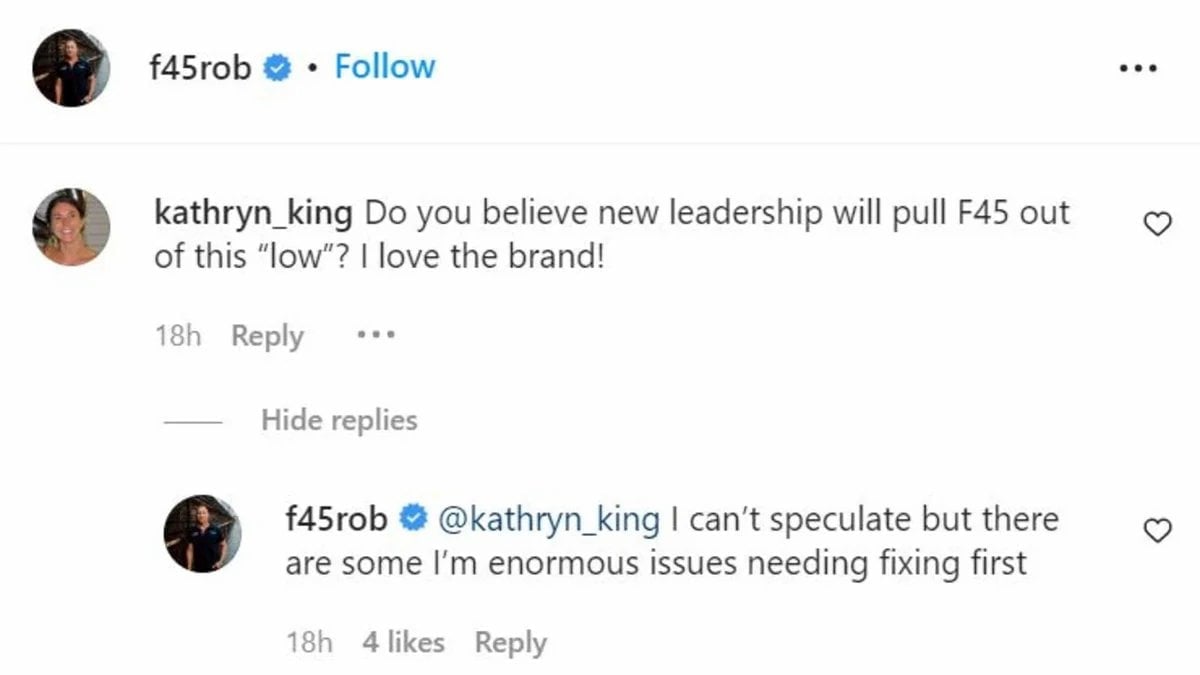
The ubiquitous red, white and blue logo. The 'Team training, life changing' motto. No mirrors. No microphones. No egos.
You probably know all of these things about F45 - even if you've never set foot in one of their gyms.
Everyone knows someone who does F45. And they're usually addicted to it.
Watch: Here's what horoscopes look like when they're working out. Post continues below.
From the endless celebrity endorsements and the 'cult' following, to the impressive Wall Street debut and the millions upon millions of dollars - the fitness chain has been a bone fide success story.
But in recent times, F45 started losing its momentum.
The stock prices tanked. The co-founder and CEO stepped down and sold their stocks. Franchises closed. People lost their jobs.
Despite having such a loyal following, at least 11 gyms in Australia having closed down unexpectedly.
And it's not only the franchises that are taking a hit, but the customers too. Many have reportedly been left out of pocket after recent collapses, with some owed up to $1000 for upfront membership payments.




Top Comments